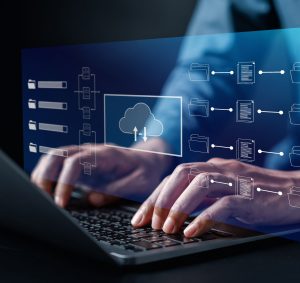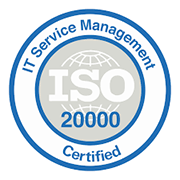In September 2022, the Congress of Deputies approved the Law for the Creation and Growth of Companies, better known as Crea y Crece” law; conceived with four objectives:
- Facilitate the creation of new companies.
- Reduce regulatory hurdles.
- Fight against delinquency.
- Promote the growth and expansion of organizations.
Four objectives that include a fundamental aspect for the entire business fabric: complete digitalization. complete digitalization of its processes and services.
This legislative measure is, in fact, within the framework of the
Recovery, Transformation and Resilience Plan, called to
Plan, aimed at increase the competitiveness of organizations through innovation and through innovation and sustainability.
E-invoicing: digital consolidation and the fight against late payments
But what does electronic invoicing have to do with this? Well, the Crea y Crece” law establishes mandatory requirements that will be gradually adopted over time by organizations. And among these requirements is that of the electronic invoicing as a further step towards the consolidation of the digitalization process.
But not only exclusively. The electronic invoicing responds to another of the objectives of the aforementioned law: to fight against late paymentespecially among SMEs.
Thus, it will be mandatory to issue and send electronic invoices in all commercial relations with companies and freelancers. According to the central government, this solution “
will ensure greater traceability and control of payments and reduce transaction costs.
“and will also reduce transaction costs.
In other words, the electronic invoice in the “Crea y Crece” law plays a fundamental role plays a fundamental role, which is why the latter is known as the “electronic invoice promotion law”. law to promote electronic invoicing.

The "Crea y Crece" Law, when does it come into force?
Although the Create and Grow” law is from 2022was approved in June and published in the BOE on September 29 of that same year, the mandatory electronic invoicing has had to wait. has had to wait.
This law contemplates two stages for the mandatory implementation of mandatory implementation of the electronic invoice in companies:
- First stage: Business organizations and freelancers with an annual turnover of more than annual turnover of more than 8 million euros.
- Second stage: Other companies and self-employed persons.
When do these stages begin?
On March 7, 2023, the regulations for electronic invoicing went out for public consultation. The first stage cannot start until 12 months after it is untested, which could be later this year. If so, the first stage could start at the end of 2024 and the second stage at the end of 2025.The first stage could start at the end of 2024 and the second at the end of 2025, since it has 12 months more margin, although the Administration is considering extending the times for smaller companies and self-employed individuals.
Don't wait any longer and move to electronic invoicing software.
What does this mean? That no company or self-employed person should wait any longer for the acquisition of a
electronic invoicing software
able to meet the new requirements of the the “Crea y Crece” law and ensure interoperability between the different platforms.
In fact, the
Tax Agency
will use the information from the electronic invoices sent (and with a direct copy to the public electronic invoicing system) to ensure compliance with the regulation through an analysis process.
Moreover, the tax information will be provided to the new State Observatory of Private Delinquency so that it can draw up its annual list of defaulting companies, i.e., those that have failed to meet the payment deadlines set out in the new legislation.
The new electronic invoicing software must have a certificate of suitability that meets the characteristics established by the Administrations in this regard. For example, allowing the rectification of an invoice, but not deleting or altering its computer record, or allowing the voluntary remission of the invoice to the records of the Tax Agency automatically.








